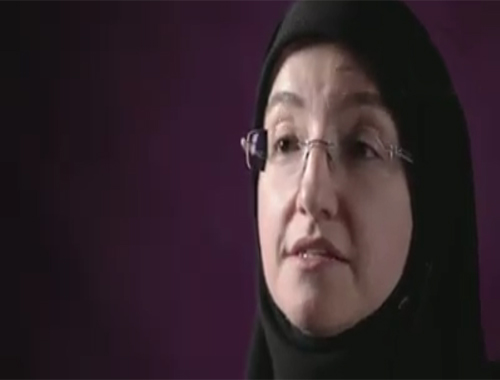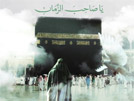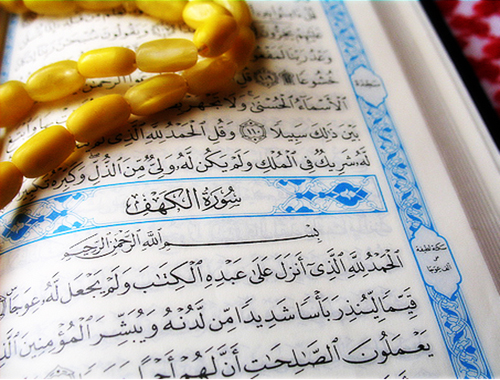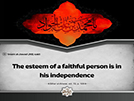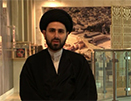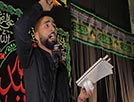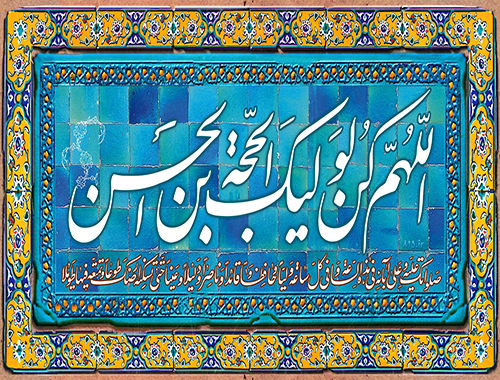saying - 261 to 280
- Details
- Hits: 7945
261. Imam Ali ibn Aba Talib, peace be upon him said: There is many a man being gradually brought towards punishment by good treatment with him; many a man who remains in deceit because his evils are covered, and many a man who is in illusion because of good talk about him, while there is no greater ordeal by Allah, the Glorified One, than the giving of time.
Sayyid ar-Razi says: “This saying has appeared earlier as well but here it contains a beautiful and useful addition.”
Section where we have included selections from wonderful sayings
of Imam Ali ibn Aba Talib, peace be upon him which require explanations:
262-1. A tradition related from Imam Ali ibn Aba Talib, peace be upon him says: When the situation is like this, then the head of the religion will rise and people will gather around him as pieces of rainless cloud gather during autumn...
Sayyid ar-Razi says: “ya`sub” is the great chief who is in charge of the people’s affairs, and “quza” means the pieces of cloud which have no rain.
263-2. A tradition of Imam Ali ibn Aba Talib, peace be upon him says: He is a versatile speaker.
Sayyid ar-Razi says: “Ashahshah” means one expert and free in speech, and everyone who is free in speech or in walking is called “Ashahshah”, while in another sense this word means a miserly and niggardly person.
264-3. A tradition from Imam Ali ibn Aba Talib, peace be upon him says: Quarrels bring about ruin.
Sayyid ar-Razi says: “Quhm” means “ruin” because quarrels often drive men into ruin and grief. In the same way, it is said “quhmatul-A`rub” which means the period (of drought) when the cattle owned by the nomad desert Arabs are reduced to bones. Another argument is also advanced in this matter, namely that the situation drives them to green areas. In other words, the hardship of the desert life drives them to hadar (metropolis area, a more sophisticated and complex living environment than that wherein nomads of the desert live).
265-4. A tradition from Imam Ali ibn Aba Talib, peace be upon him says: When girls come of age, relatives on the father’s side are preferable.
Sayyid ar-Razi says, “Instead of ‘nassa’l-hiqaq’, the combination of ‘nassa’l-haqa’iq’ has also been related.” “Nass” means the last end of things or their most remote limit, such as “an-nassi fi’ssayr” means the maximum a beast can walk. Or you say “nasastur-rajula `anil-amri” when you have questioned a man to the extreme to make him utter all that he has. Thus, “nassul-haqa’iq” means prudence because it is the last limit of childhood and is the time when a child crosses childhood into maturity. This is a very eloquent reference to the point, and a strange one, too. Imam Ali ibn Aba Talib (p.b.u.h.) intends to say: “When girls reach this stage, their relatives on the father’s side have a better right [to marry them] than their mother, provided they are those with whom marriage is not prohibited, such as brothers and uncles, etc., to arrange for their marriages if they so desire. “Al-hiqaq” also means the quarreling of the mother with a girl’s paternal relatives. This quarrel is that everyone of them says he has a better right for her. That is why it is said “haqatuhu hiqaqan” on the lines of “jadaltuhu jidalan”. It has also been said that “nassul-hiqaq” means acquiring understanding. This is prudence, too, because Imam Ali ibn Aba Talib (p.b.u.h.) refers to the stage when rights and duties become applicable. The person who has related the word as “haqa’iq” intends to signify the plural of “haqiqah” (reality, fact, truth).
The above is what Aba ‘Ubayd al-Qasim ibn Sallam has stated (in Gharib al-Hadith, Vol. 3, pp. 456-458); but I think that what is meant here by the word “nassul-hiqaq” is a girl’s reaching the stage when it is possible to marry her and allow her to dispose of her rights herself on the analogy of “bil hiqaqi mina’l-ibili” (a camel’s attaining majority) wherein “hiqaq” is the plural of “hiqqah” or “hiqq”; it means completion of three years and entry into the fourth, which is the time when it reaches the age when it is possible to ride on its back. “Haqa’iq”, too, is the plural of “hiqqah”. Thus, both the versions point to the same meaning, and this interpretation is more in keeping with the way of the Arabs than the other one stated earlier.
266-5. A tradition of Imam Ali ibn Aba Talib, peace be upon him says: Faith produces a “Alumazah” in the heart. As faith develops, “Alumazah” also increases.
Sayyid ar-Razi says: “Alumazah” is a white spot, or something like that. On that analogy, if a horse has a white spot on its lower lip, it is called “farusun al-mazu”, that is, a white-spotted horse.
267-6. A tradition of Imam Ali ibn Aba Talib, peace be upon him says: If a man has “ad-daynu’z-zanun” (i.e. doubtful loan), it is his duty to pay zakat thereon for all the past years when he recovers it.
Sayyid ar-Razi says: “Az-zanun” is the loan about which the lender does not know whether he will be able to recover it from the borrower or not. He is like the one who hopes as well as loses hope. This is the most eloquent way of expression. In this way, everything about which you do not know where you stand will be zanun. In the same strain, the poet al-A`sha (Maymun ibn Qays al-Wa’ili [d. 7/629]) says, “The azzanun well (i.e. the one that may or may not have water), which is also deprived of the rain of the clouds and cannot be compared to the Euphrates whose waves are rising high and which ever pushes the boat away on its current as it does the adept swimmer.”
“Jubb” means “ well” (located in a wilderness), while zanun is that about which it is not known whether or not it has water.
268-7. A tradition of Imam Ali ibn Aba Talib, peace be upon him relates that he arranged a force for advancing for jihad and said: I’dhibu (turn away) from women as far as you can.
Sayyid ar-Razi says: It (“i‘dhibu”) means “stay away” from thoughts of women and from clinging your heart to them, and do not have union with them, because all this produces weakness in enthusiasm, affects the firmness of determination, weakens one against his enemy and prevents one from excelling in fighting. Anything which prevents from something is called “adhAba ‘anhu” i.e. turned away from it. Thus, “al-‘adhib” and “al-adhub” mean one who gives up eating and drinking.
269-8. A tradition of Imam Ali ibn Aba Talib, peace be upon him says: ... Like the successful shooter (al-yasir al-falij) who looks forward to achieving success at his first shot.
Sayyid ar-Razi says: “Al-yasirun” (pl. of al-yasir) means those who shoot with arrows on the slaughtered camel by way of gambling, while “al-falij” means successful or victorious. For example, it is said: “falaja `alayhim” or “falajahum” (that is, he got victory over them or overpowered them). A poet has said by way of war this recital: “When I noticed a successful person securing victory..., etc.”
270-9. A tradition of Imam Ali ibn Aba Talib, peace be upon him runs as follows: When the crisis became red-hot, we sought refuge with the Messenger of Allah (p.b.u.h.), and none of us was closer to the enemy than he himself was.
Sayyid ar-Razi says: “This means that when fear of the enemy increased and fighting became serious, the Muslims begin to think that since the Messenger of Allah had taken up fighting himself, Allah must give them victory through him and that, therefore, they will be safe from all the dangers because of his presence.”
And the words “idha’hmarra’l-ba’su” (when the crisis became red-hot) refers to the seriousness of the matter. For this purpose, several expressions have been used out of which this is the best, since Imam Ali ibn Aba Talib (p.b.u.h.) has likened war with fire which combines heat and redness both in action as well as in color. This is confirmed by the words of the Messenger of Allah (p.b.u.h.) when during the battle of Hunayn, he noticed the people of Hawazin (tribe) fighting, he said: “Now the watis has heated up” and watis is the place where fire is lighted. In this way, the Messenger of Allah (p.b.u.h.) likened the seriousness of fighting by men to the seriousness of the fire and its flames.
This section ends and we return to the original theme of the chapter.
271. When the news of the attack of Mu`awiyah’s men on al-Anbar reached Imam Ali ibn Aba Talib, peace be upon him, he himself came out walking till he reached an-Nukhaylah where people overtook him and said: “O Imam Ali ibn Aba Talib! We are [mighty] enough for [defeating] them.”
He said: You cannot be enough for me against yourselves, so how can you be enough for me against others? Before me, the people used to complain of the oppression of their rulers, but now I have to complain of the wrongful actions of my people; as though I am led by them and they are the leaders, or that I am the subject and they are the rulers.
The narrator says: “When Imam Ali ibn Aba Talib (p.b.u.h.) uttered this during his long speech, which we have included in the collection of sermons (No. 27), two men from among his companions advanced towards him and one of them said: “‘I rule none except myself and my brother’ (Qur’an, 5: 25). So, order us with your command, O Imam Ali ibn Aba Talib and we will carry it out.” Thereupon, Imam Ali ibn Aba Talib (p.b.u.h.) said: “How can you two accomplish what I aim at?”
272. It is said that al-Harith ibn Hawt came to Imam Ali ibn Aba Talib and said: “Do you believe that I can ever imagine that the people of Jamal were wrong?” Imam Ali ibn Aba Talib, peace be upon him said: “O al-Harith! You have seen below yourself but not above yourself, so you have been confused. Certainly, you have known right, so that you can recognize the righteous. And you have not known wrong, so that you can recognize the people who are wrong!” Then al-Harith said: “In that case, I shall withdraw along with Sa‘d ibn Malik and ‘Abdullah ibn `Umar,” whereupon Imam Ali ibn Aba Talib (p.b.u.h.) said: “Verily, Sa‘d and `Umar have neither sided with right nor forsaken wrong.”
273. Imam Ali ibn Aba Talib, peace be upon him said: One who holds authority is like one who rides a lion; he is envied for his status but he well knows it.
274. Imam Ali ibn Aba Talib, peace be upon him said: Do good with the bereaved ones of others so that good is done to your bereaved ones, too.
275. Imam Ali ibn Aba Talib, peace be upon him said: When the utterance of the wise is to the point, it serves as a cure, but if it is wrong, it acts like an illness.
276. Someone asked Imam Ali ibn Aba Talib, peace be upon him to define religion for him. The Imam said, “Come to me tomorrow so that I may enlighten you in the presence of all people; thus, if you forget what I say, others might retain it. This is so because an utterance is like a fluttering prey which may be grappled by someone but missed by others.”
Sayyid ar-Razi says, “We have already stated in the earlier chapter how Imam Ali ibn Aba Talib replied to this man, namely his saying (No. 31): ‘Faith stands on four pillars, etc.’”
277. Imam Ali ibn Aba Talib, peace be upon him said: O son of Adam! Do not inflict the worry of the day that has not yet come on the day which has already come because if that day is in your life, Allah will also bestow its livelihood.
278. Imam Ali ibn Aba Talib, peace be upon him said: Have love for your friend up to a limit, for it is possible that he may turn into your enemy some day. And hate your enemy up to a limit, for it is possible that he may turn into your friend some day.
279. Imam Ali ibn Aba Talib, peace be upon him said: There are two kinds of workers in the world. One is a person who works in this world for this world and his work for this world keeps him unmindful of the next. He is afraid of destitution for those whom he will leave behind but feels safe about it. So, he spends his life seeking the good of others. The other is one who works in this world for what is to come hereafter, and he secures his share of this world without an effort. Thus, he gets both the benefits and becomes the owner of both homes. In this way, he is prestigious before Allah. If he asks Allah anything, He does not deny him.
280. It is related that during the days of (caliph) `Umar ibn al-Khattab, the question of the excess of the ornaments of the Ka‘bah was mentioned to him and some people suggested the following: “If you raise by it an army of Muslims, it will be a matter of great reward, and what will the Ka‘bah do with the ornaments?” `Umar thought of doing so but asked Imam Ali ibn Aba Talib (p.b.u.h.) what he thought. The Imam said: When the Qur’an was revealed to the Prophet (p.b.u.h.), there were four kinds of property: One, the property of a Muslim which he distributed among the successors according to fixed shares. Second, the tax (fay’) which he distributed to those for whom it was meant. Third, the one-fifth (khums) for which Allah had fixed the ways of disposal. Fourth, the amounts of charity (sadaqat) the disposal of which was also fixed by Allah. The ornaments of the Ka‘bah did exist in those days, but Allah left them as they were. He did not leave them by omission, nor were they unknown to Him. Therefore, you should keep them where Allah and His Prophet placed them.
Thereupon, `Umar ibn al-Khattab said, “If you had not been here, we would have been humiliated.” He left the ornaments as they were.

